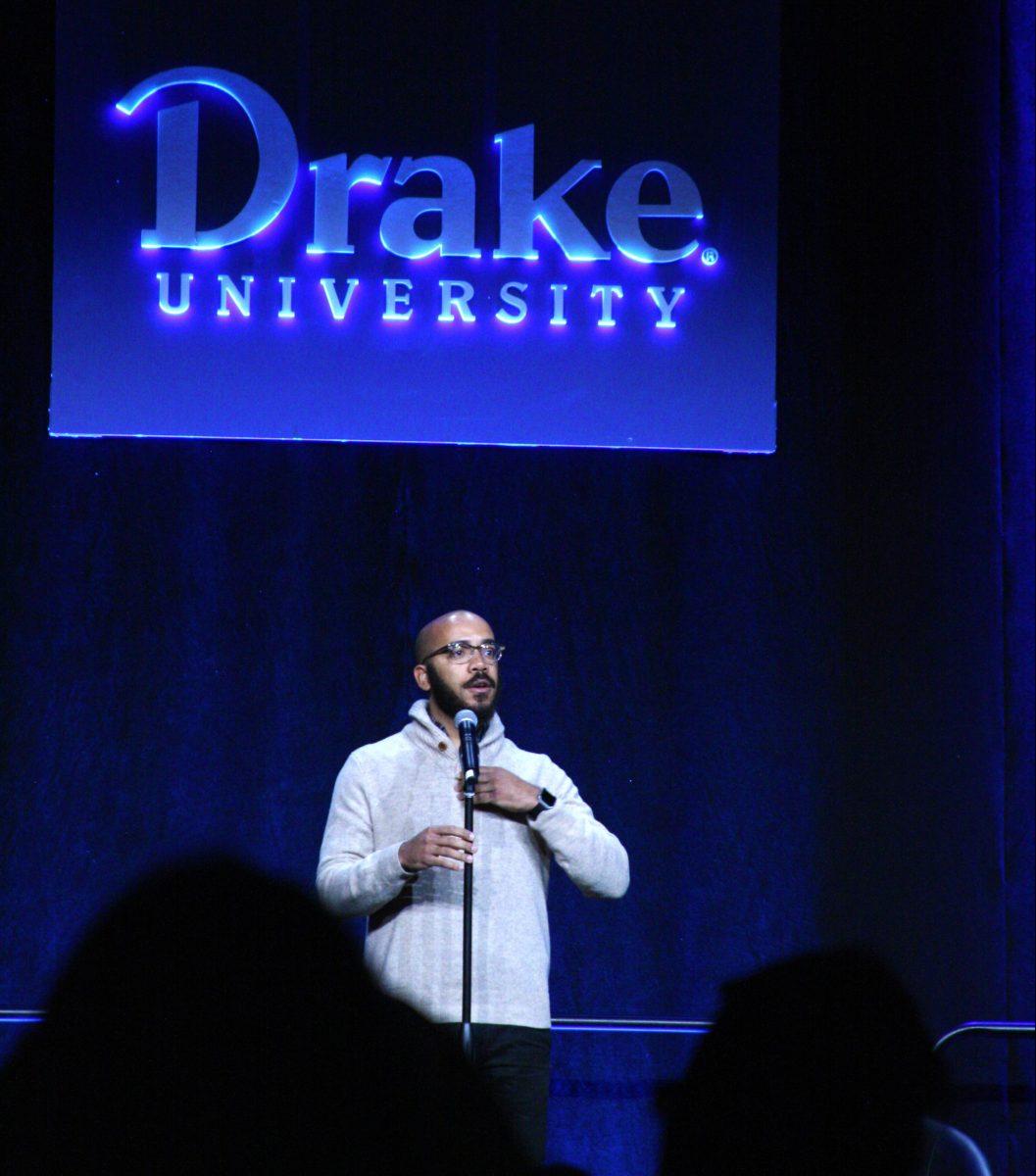Photo by Lórien MacEnulty.
BY LÓRIEN MACENULTY
Social justice and humor; the 38th Martin Bucksbaum Lecture served as an exhibition of these two very diverse forms and uses of poetry.
On one hand, the spring lecture featured Clint Smith, an impassioned, philosophical doctoral candidate at Harvard University. Smith used lengthy oration and diction to comment on the state of society, in particular its treatment of racial minorities from the perspective of a child and growing up in a loving and supportive family.
This deep social commentary was offset later in the evening by renowned U.S. Poet Laureate Billy Collins, whose monotone voice formed less serious contemplations of life’s diverse array of topics. Tennessee fainting goats, imaginary sisters, Nebraska and Cheerios number a few of these subject matters.
“Coming in, I knew that they were two different artists,” said Erica Hartschen, Bucksbaum Lecture coordinator. “I had no idea how their conversations would go … I did know it would be thought-provoking, which it was, and that both of them have something really powerful to say. To be able to get them together is very rare.”
Hartschen estimated that roughly 1,800-2,000 people showed up to this event, which was held in the Knapp Center to accommodate such a large crowd. Over 50 crew members were employed to manage the event, for which planning began two months prior.
“The (Bucksbaum Lecture) committee knew they wanted a lighter topic this spring, since we came off a very powerfully hard election season with politics,” Hartschen said. “We wanted to steal away from politics being the main focus of the conversation.”
Outside of politics, the juxtaposition of the poems provided a different dynamic to the evening. Smith displayed significance in, for example, likening his protective and loving father to an oyster who forms a pearl only when what he values most is under threat.
As a boy, Smith said he had multiple conversations about security and racial bias with his parents, which he reimagined in the form of personified inanimate objects.
Smith’s words were often met with snaps or murmurs of concurrence, sounds native to a poetry slam. Collins, who took a less interpretive route in his selection of poems, encountered mainly laughter in response.
As a result of the difference in poetic form, the audience inevitably learned to navigate the levels of interpretive pressure to apply to the poems.
“Once you get to know a poet well, you get to pretty much know how much interpretive pressure to apply to that poet,” Collins said in a Q&A session immediately succeeding the lecture. “You can apply a lot of interpretive pressure to a difficult poet like Wallace Stevens or Martin Crane or Elliot. If you apply that amount of pressure to my poems, it would just go through the page. Cheerios is just Cheerios.”
According to Hartschen, this was the goal of the Bucksbaum Lecture series.
“It’s about sometimes conflicting thoughts, dialogue, opinion, but coming together on one stage, so to speak, on platform, and explain why all ideas should be shared, heard,
and respected,” Hartschen said. “I feel like the mission of the lecture series is to do that.”
The Bucksbaum Distinguished Lecture Series is made possible by an endowment fund donated to Drake by the late Martin and Melva Bucksbaum. The lectures, which began in 1996, are free and open to the public.







